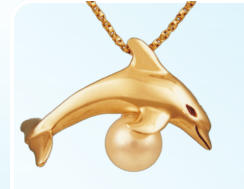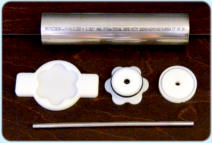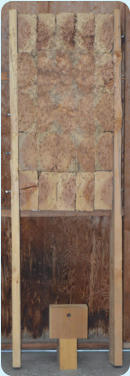Updated - October 4, 2025 - Copyright - Ralph Gibson - 2014

Other Projects
Included on this page are a number of miscellaneous projects. Please click on an
image for a larger view.
2025 Christmas Ornaments Project:
This year I created two Desktop Christmas Ornaments, for the 7th Annual Turners
Warehouse Ornament Contest and Charity Auction 2025. The annual charity
auction benefits St. Jude Children’s Hospital, and runs from December 2nd through
December 6th. Please check the Turners Warehouse website for more information.
The ornaments use a DFRobot Beetle controller card, that is programming compatible with the Arduino
Leonardo controller card. For programming the Beetle, I used the Arduino IDE version 2.3.6. The Beetle
card is based on the ATMEGA32U4 device, and the part number is DFR0282. The software running on the
ornaments allow up to 10 different LED display modes to be selected. The icon above links to an
ornament user guide in PDF format, that describes how to use the ornament. When power is applied to
the ornament USB cable, the LEDS blink to indicate which software version is programmed on the
ornament Beetle card. My background is hardware design engineering, so apologies in advance if the
software isn’t very elegant.
The images included above link to photos of the ornaments that were created. They also link to the
Beetle hardware design schematic, the design document in PDF format, and the Arduino sketch file
program in .zip format, that runs on the Beetle controller card.
The ornaments include 22 RGB LEDS in a strip, that shine through a polycarbonate ring. Each of the 22
RGB LEDS are individually programmable, allowing excellent control of the LEDS. The ornaments are built
in four sections, with the top and bottom sections each glued to the upper and lower center sections. The
two center sections are then coupled together with six 3/16” magnets.
There is a link included to the CNC milling files used to create the ornaments, were done in Vectric
VCarve-Pro version 10.5.
Knife Throwing Hobby:
After watching YouTube videos on No-
Spin Knife Throwing, decided to give it a
try. Following a review on YouTube by Adam
Celadin, I purchased two sets of throwing knives from DXB-Sport. One
set of three Drago knives, and one set of three Viserys knives. These are
very nice heavy duty steel knives about 10” in length, and just under 1/4”
thick. Both sets are great, but both my son and I prefere Viserys.
I started out trying to throw into a pine plank that I had as a target, with little luck. So I
made an end grain throwing target out of regular 4” x 8” lumber. I based the design on
an example April Wilkerson showed in her YouTube video, “Making an End Grain Knife
Throwing Target”. In this design the blocks that make up the target are not glued
together, and can be removed and replaced as necessary. My target is somewhat larger,
with five rows x five columns of 4” x 8” segments, each 6” in length. This results in a
throwing target about 18” x 37” overall. Each block has a 7/8” hole drilled through as
shown, to pass a length of 1/2” PVC pipe. Each row of blocks, has a length of 5/16”-18
threaded rod passed through the PVC pipe. The ends of the threaded rod are secured
with 5/16” over-sized washers, Nylon Lock Nuts, and Cap Nuts. The first target was made with 2” x 4” x
5-3/4” lumber, but it didn’t hold up very well.
So far, the hobby is providing some excellent light exercise, with lots of walking and bending to pick the
knives up off the garage floor. I’ve been practicing for about a year now, and am seeing quite a bit of
improvement, though I have a long way to go. One of the best tutorials I’ve seen on YouTube was
created a few years ago by Samoth Chipmah, “No Spin Knife Throwing Tutorial”. A nice feature of the
tutorial, is that there is an index in the description, showing at which point in the video different topics
are located. Making it easy to locate specific areas of the video to review as needed.
Ice Mold for 24 oz. Thermal Glass:
Since I prefer to drink water cold, I decided to create a stainless steel mold for a large ice cube for a 24
oz. thermal glass.
Left Image: At the top of the first image is a
2-1/8” ID x 2-1/4” OD stainless steel tube.
The HDPE parts in the center were fabricated
on my CNC mill. On the left is a “wrench” to
help in removing the O-Ring base. In the
center is the O-Ring base, and on the right is a
cap to keep a stainless steel tube centered
while freezing. At the bottom of the image is
the 5/16” OD stainless steel tube which creates space in the ice cube for a plastic straw. I
tried to freeze the ice cube with a plastic straw in place, but the straw was crushed by the
ice while freezing. So far, the stainless steel tube used for the straw channel works great.
Center Image: To freeze the ice block, the mold is filled with water, set in a small bowl,
and placed in the freezer. Shown here is the 24 oz. glass and the ice mold removed from
the freezer. While freezing, the ice block expands pushing the O-Ring base, shown in the right end of the
tube, slightly out of the large stainless steel tube.
Right Image: If the ice mold is removed from the freezer and left on the counter for 30 to 45 minutes,
the large stainless steel tube warms enough to allow the ice block to slide out. After placing in the glass,
it usually requires a few breaths blown through the stainless steel tube, to warm it enough to remove the
stainless steel tube, to replace it with the plastic straw.








































